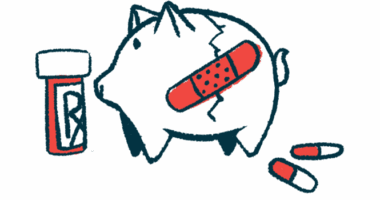Phase 1/2 trial of gene-editing therapy advances in FAP patients
Data support testing YOLT-201 at high dose in larger group of adult patients

A single infusion of YOLT-201, Yoltech Therapeutics’ investigational gene-editing therapy, appears to be safe and to effectively reduce blood levels of the disease-driving TTR protein in people with familial amyloid polyneuropathy (FAP).
That’s according to preliminary data from six FAP patients given the therapy in the initial, dose-escalating portion of an ongoing Phase 1/2a clinical trial, dubbed YT-YOLT-201-101 (NCT06539208), in China.
In addition to demonstrating safety and tolerability, early findings showed that the higher of two tested doses resulted in a more than 90% drop in circulating TTR protein levels, YolTech announced in a company press release.
Therapy targets TTR gene in liver cells to stop toxic protein production
During a meeting of the trial’s safety review committee, the higher dose was considered the optimal dose for the study’s second, dose-expansion part, which will test that dose in a larger number of adults with FAP. Dose escalation has finished for enrolled FAP patients.
The trial also is testing the therapy in people with hereditary transthyretin amyloidosis with cardiomyopathy (hATTR-CM), a FAP-related condition that mostly affects the heart, instead of the nerves outside the brain and spinal cord. The trial’s status for this group of patients was not disclosed.
Hereditary transthyretin amyloidosis (hATTR) comprises a group of diseases caused by inherited mutations in the TTR gene. Such mutations result in the production of an abnormal TTR protein, which forms toxic clumps called amyloid fibrils that deposit in various organs and tissues and cause damage.
In FAP, also called hATTR with polyneuropathy, amyloid fibrils mainly accumulate in the peripheral nerves, those that extend from the spinal cord into the body’s extremities. FAP symptoms include tingling, numbness, or burning in the limbs. In hATTR-CM, the toxic TTR clumps build mainly in the heart.
Administered as a single infusion directly into the bloodstream, YOLT-201 is a gene-editing therapy designed to halt production of the TTR protein by targeting the TTR gene. It uses lipid nanoparticles, or small vesicles made up of fatty molecules, to deliver a gene-editing machinery directly to liver cells, where the TTR protein is produced.
Data from an investigator-initiated Phase 1 trial (NCT06082050), conducted at a single site in China, demonstrated that YOLT-201 safely lowered TTR protein blood levels in adults with hATTR-CM.
Safety seen over follow-up in six FAP treated at high and low dose
Given the go-ahead by Chinese regulators last year, the current Phase 1/2a trial is evaluating YOLT-201’s safety and pharmacological properties in up to 31 adults, ages 18-80, with FAP or hATTR-CM.
Its initial, dose-escalation portion was designed to determine the optimal dose of YOLT-201, while its dose-expansion portion aims to assess that dose’s safety and preliminary efficacy.
The trial, being held at three sites in China, to date has results covering the testing of two YOLT-201 doses in its dose-escalation stage, which included six FAP patients and two hATTR-CM patients.
Follow-up data from the six FAP patients showed no reports of severe adverse events, dose-limiting toxicities, or serious adverse events leading to treatment discontinuation, according to YolTech. Potential efficacy was seen in those treated with the higher YOLT-201 dose, who were reported to achieve over 90% reductions in blood TTR protein levels.
The study is expected to end in mid-2026.







